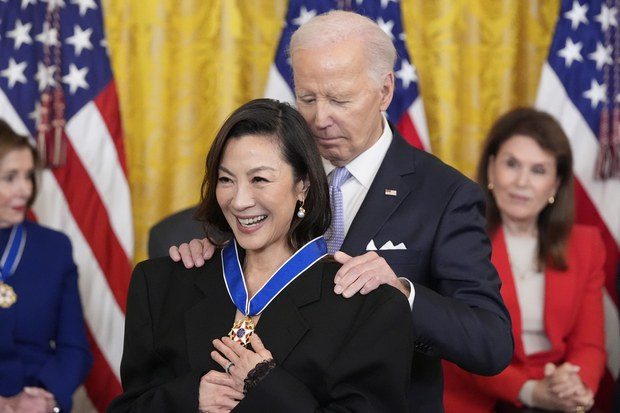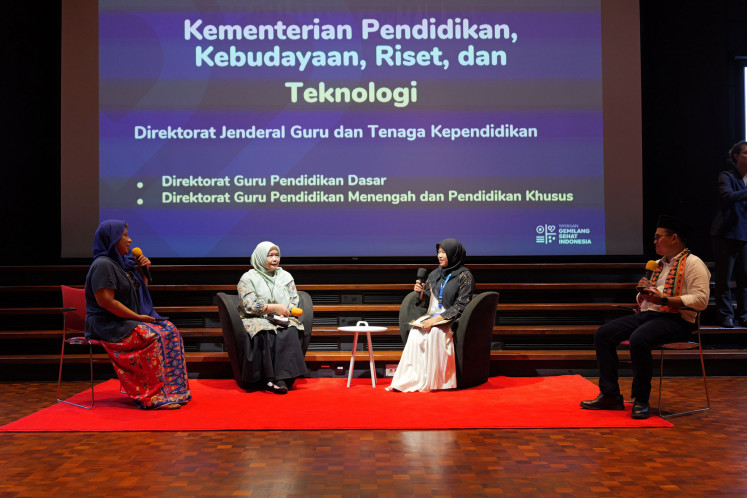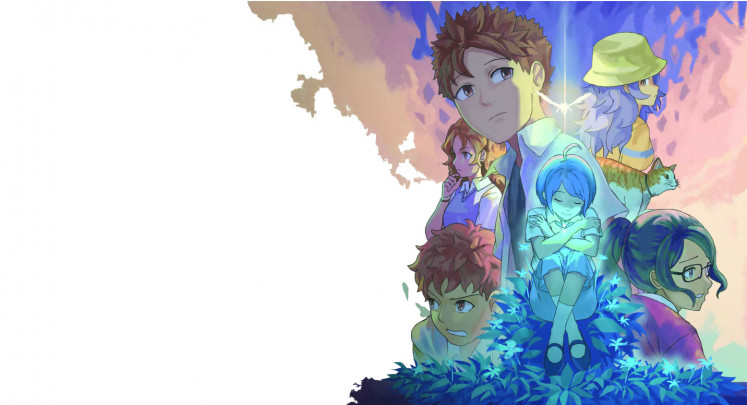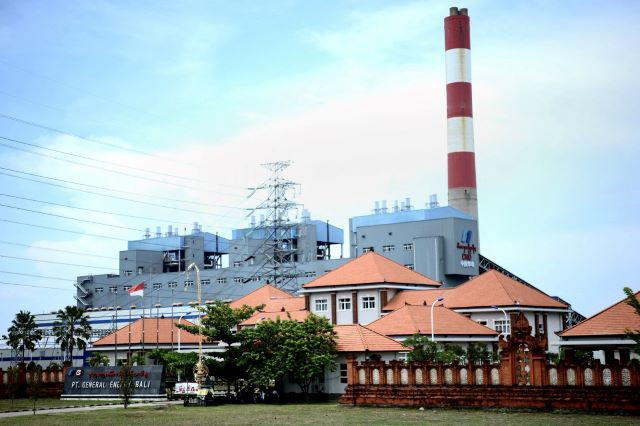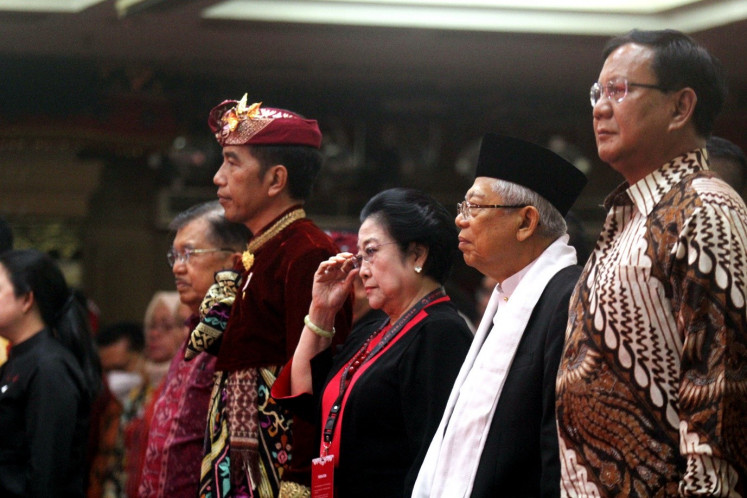'NKCTHI': Portrait of family haunted by loss, trauma and ghost of New Order
NKCTHI is not just a family drama you watch while eating popcorn; it's also a work of art worth discussing in depth as soon as you leave the theater.
Change Size
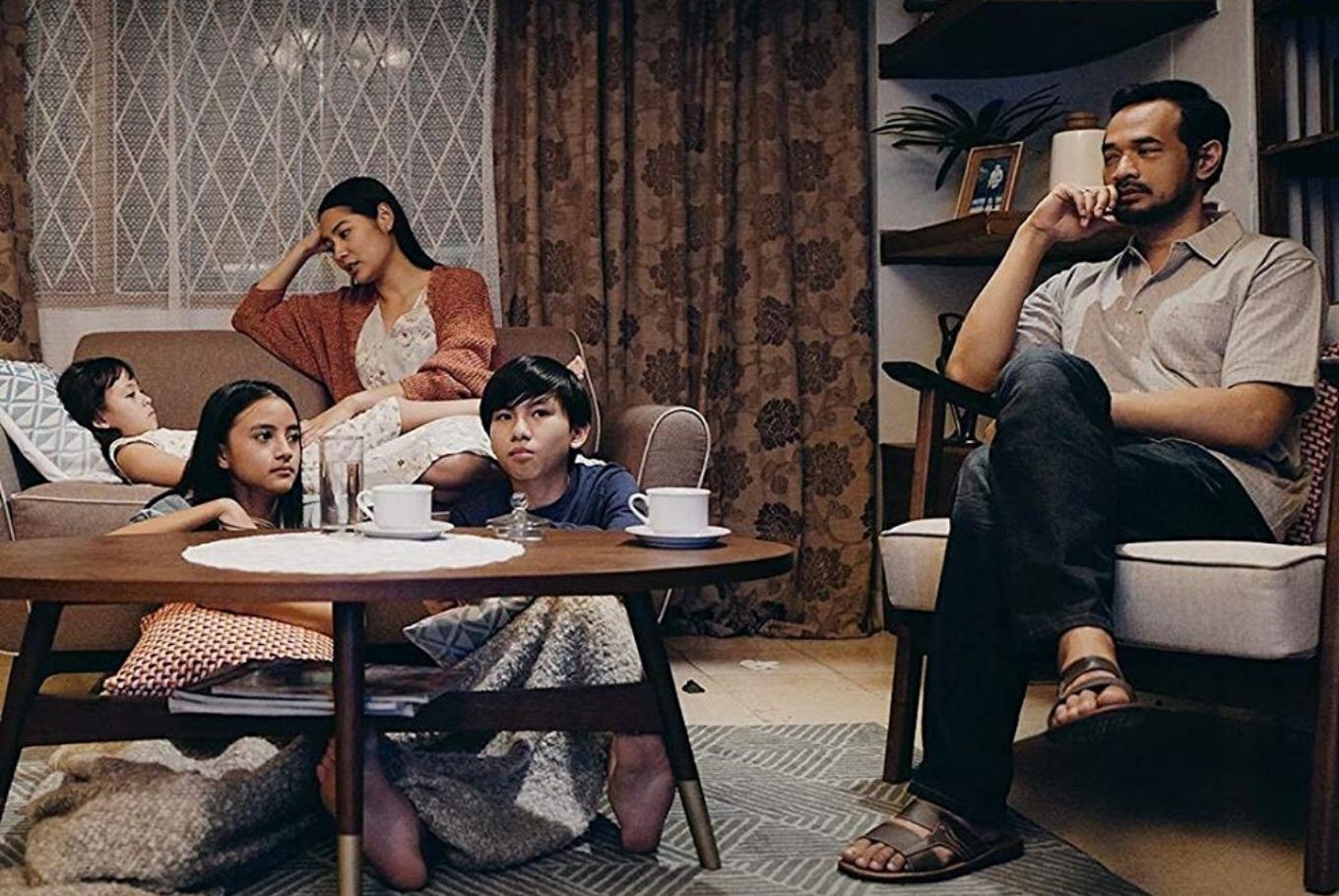 A promotional poster for 'Nanti Kita Cerita Tentang Hari Ini' (One Day We'll Talk About Today) (Visinema/File)
A promotional poster for 'Nanti Kita Cerita Tentang Hari Ini' (One Day We'll Talk About Today) (Visinema/File)
N
i>Nanti Kita Cerita Tentang Hari Ini (NKCTHI, One Day We'll Talk about Today) is a movie directed and co-written by Angga Dwimas Sasongko with fellow co-writer and Citra trophy winner Jenny Jusuf. Adapted from the eponymous book by Marchella FP, the film tells the story of a family chasing a normal, happy life despite harboring an unresolved secret trauma. The movie's tagline is "Setiap keluarga punya rahasia [Every family has its own secret]”, so the obvious questions are: What is the secret? How will it affect the family?
The story centers on siblings Angkasa (Rio Dewanto), Aurora (Sheila Dara) and Awan (Rachel Amanda) as the youngest. It is narrated in three phases conveyed in a non-linear timeline: the birth of Awan, Awan's childhood and the present day.
The biggest challenge of adapting the book into the big screen is creating a plot, as the source material does not include one. Marchella and her NKCTHI brand are known for inspiring and motivational words, presented along illustrations that are social-media friendly, which boosts the brand's popularity.
That being said, Angga and Jenny created conflicts while maintaining the soul of the source material: dealing with loss and disappointment.
The central theme of the film is how to cope with negative emotions on a daily basis. Each character, including the parents (Susan Bachtiar and Donny Damara), needs to deal with the theme as choices made by Awan create a conflict that affects the whole family.
Just like the book, the film has an endearing touch that will make you believe in hope. Finding a little piece of yourself on the screen can feel uplifting, as I've experienced with the movie. With its characters and their failures, NKCTHI shows that we need more than just happiness in life. Our lives can only be fully embraced by accepting sadness and its wounds.
As it is a family drama, Angga and Jenny make the clashes as stark as possible. They chose to present the contradicting choices made by the parents and the children. This juxtaposition is a subtle statement about the differences between the powerful and the powerless – also between the older generation who lived through the country's New Order and those who came afterward.
The father represents a powerful figure not unlike a dictator. The house and his personality are reminiscent of the oppressive New Order. While he is described as a loving parent, he is also as a figure who doesn't listen and constantly gives orders, which affects his children. Angkasa feels a big responsibility for his sisters. Aurora thinks she's obliged to compromise, and Awan feels her choices are made by her father. Throughout the film, the father's decisions are considered authoritarian and outdated by the younger generation.
The mother, on the other hand, represents another side of the New Order: powerlessness. In the house, she's mostly silent and obeys her husband. Through a series of flashbacks, we see how the children experience what the mother has experienced, especially Angkasa. Since he was little, his father has instilled in him a feeling of strict responsibility toward his younger sisters. But while their mother is submissive and obedient, the children are hardly so.
The differences between the mother and her children are stark in an era where freedom of expression and the pursuit of happiness are championed. In the movie's latter acts, the children become more rebellious. Without a doubt, NKCTHI is more than just a film portraying family drama dealing with disappointment, loss and trauma. Its characters are designed within the strong political context of this country. Parents, who are in the baby boomer generation, mostly expect their children to obey them without trying to listen to what they want. It is a trait passed down from an era where truth was mostly silenced and freedom of expression was limited.
NKCTHI is worth discussing when you leave the theater. Without a doubt, this is Angga's best work as a director so far. (dev/wng)




